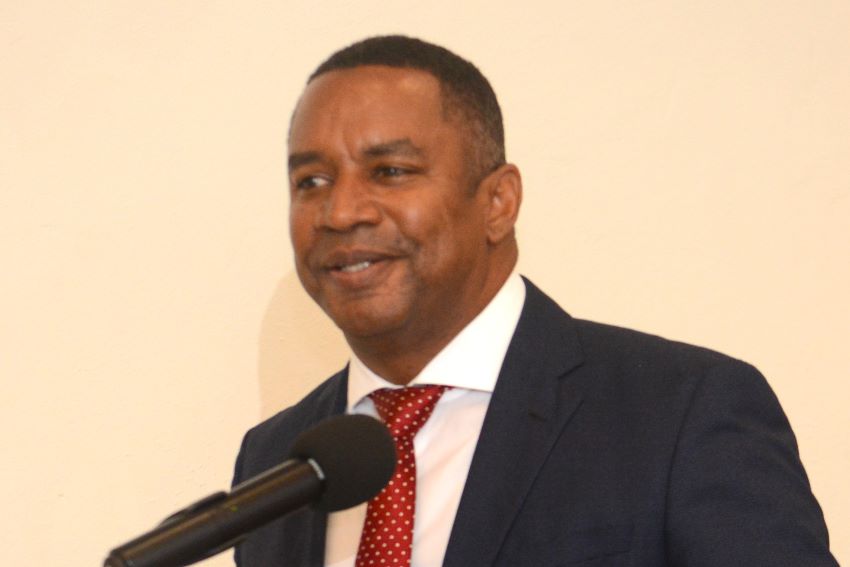
Government has invested heavily in expanding its early warning capacity to alert members of the public about impending hazards, to give them the maximum time possible to prepare for likely impacts.
Minister of Home Affairs and Information, Wilfred Abrahams, shared this news on Wednesday, shortly before the signing of a Memorandum of Understanding to enhance cooperation on integrated disaster risk management between the European Union and national and regional actors, at Savannah Hotel, Hastings, Christ Church.
Mr. Abrahams told his audience: “Early warning triggers early action and early warning therefore saves lives…. One of the priorities on the disaster risk reduction agenda in Barbados has been the deliberate effort to improve the national multi-hazard early warning system as a key systemic contributor within the comprehensive disaster management process, and ultimately in the quest for a resilient state.”
Barbados, he said, was one of 30 countries selected to benefit from the Early Warning for All Initiative, supported by the United Nations Office for Disaster Risk Reduction.
He explained that the initiative focuses on building out early warning systems in countries to ensure that the emphasis is on saving people and property, and the development of the country.
The Minister noted that the Common Alerting Protocol (CAP) app was launched here in 2017. “To date, there are over 43,000 users of the system, which sends alert messages out through the app, and via email to subscribers. In addition, it is also designed to do radio and television interruptions to alert the public about impending hazards.
“These mechanisms proved useful for Barbados during the eruption of the La Soufriѐre volcano in St. Vincent and the Grenadines in 2021, when the public received alerts through the CAP app about the dust plumes, possible impacts, and actions they should take well ahead of its arrival over the country,” he stated.
Mr. Abrahams noted that in recent times, the focus has also been on building capacities of the Barbados Meteorological Services to detect and monitor potential hazards, as well as warn populations of the impending dangers.
He highlighted the Multi-Hazard Early Warning Systems Policy, spearheaded by the Department of Emergency Management, as a “critical step” to strengthening the island’s enabling environment to effectively manage risks, and the impacts from disasters, especially those resulting from climate change.
As the frequency, intensity, severity and impacts of events continue to increase, the Minister proffered the view that countries must increase their resilience and preparedness levels to keep citizens safe.
“Each stage of the disaster management cycle – mitigation, preparedness, response, and recovery – is therefore critical to a country’s ability to bounce forward in the aftermath of a disaster. The type of mitigation measures implemented can determine the level of damage; [and] the preparedness of a population can also affect their ability to prepare for the impending hazard and respond effectively….
“Therefore, it is critical, for all at the individual level, community level, organisational level, and country level to be always prepared,” he stressed.
Mr. Abrahams underscored the importance of establishing and strengthening strategic partnerships, noting that no country has the financial or human capacity to adequately respond to the severe impact of hazards and disasters when they occur.
